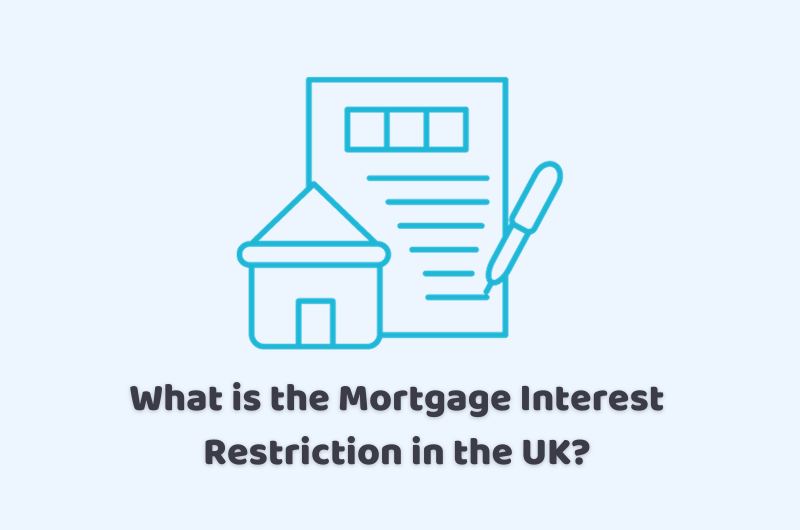
27/10/2023Landlord
Are you a landlord wondering how the Mortgage Interest Restriction (MIR) affects your taxes? Read this blog till the end.
MIR is a policy that was introduced by the UK government in 2017. It was gradually applied over the next 4 years to give the landlords time to adjust to the changes. It affects your taxes and income; therefore, you need to know about it.
In this blog, we will cover a range of questions to give you a complete understanding of the topic. Firstly, we will look at what Mortgage Interest Restriction is and why the government imposed it. Then, we will see who is affected by this change, and if you are, how can you calculate your new tax? Let’s begin!
If you are looking for regular tax updates as a landlord, visit CruseBurke!
What is Mortgage Interest Restriction (MIR)?
Mortgage Interest Restriction restricts the tax relief for financing costs on residential properties to the basic rate of income tax. It changed how much tax relief will be provided to you for various finance costs, which include:
- Mortgage Interest
- Interest on loans taken for furnishing
- Charges paid when taking out a loan or a mortgage
This is what the MIR policy entails, but what was the reason for imposing it?
Why Did the Government Impose Mortgage Interest Restrictions?
Prior to the fiscal year 2016–17, you could claim almost all of your mortgage interest against your rental income. This meant that there were some landlords who were at an advantage with a higher rental income. To make the system fairer, the government introduced the Mortgage Interest Restriction policy. They reduced your tax relief if you had a high income and were paying the income tax at a higher rate.
The tax relief was gradually reduced over a period of four years. According to HMRC, the deductions from property income will be restricted to:
- 75% for 2017-18
- 50% for 2018-19
- 25% for 2019–20,
- 0% for 2020-21 and beyond
Therefore, the individuals will only be able to claim a basic rate tax deduction of 20 percent. This reduction is from their Income Tax Liability on the portion of finance costs that are not deducted while calculating the profit.
Implications of Mortgage Interest Restriction on Different Sectors:
The MIR impacts a lot of people in the economy, and therefore the economy itself. Following are some of the major implications of this policy:
1. Impact on the Economy
The government expects that MIR could reduce the overall demand for housing, but only marginally. However, there is not a significant impact on the prices of houses or rents. This is because only a small portion of people are affected by the policy.
2. Impact on Landlords
The government of the UK expects that only 20 percent of landlords will be affected by the introduction of MIR. The individuals who were getting a higher rate of tax relief will have to bear more costs to make the market fairer.
3. Impact on Equality
The policy is targeted at promoting equality. Those with higher rental incomes will have to pay more. However, if you are in the protected characteristic group, you will not be affected.
Now that you know why the government imposed the restriction, let’s see if you are affected by it.
Are You Affected by MIR?
The Mortgage Interest restriction only affects those who are paying a higher tax rate of 40 percent on their income. Previously, you could reclaim 40 percent of your mortgage interest; now, that rate has been reduced to 20 percent. However, if you were a basic-rate taxpayer, you were already getting only 20 percent tax relief, and therefore, nothing changed for you.
How Can We Help?
If you are a landlord who has multiple properties and you are paying a higher income tax, you need help. Therefore, we at CruseBurke provide you with the best accounting services in London. That’s not all; we ensure that you get the benefits that the government allows and plan your taxes ahead of time.
Click here to get an instant quote from our team at CruseBurke!
A Quick Summary!
Mortgage Interest Restriction is a policy that reduces the tax relief that you can claim on finance costs. This also includes the fees paid on getting loans and mortgages as well as loans taken out for furnishing. The policy makes the market a bit fairer by disincentivising landlords with higher incomes.
If you were getting 40 percent tax relief on mortgage interests, now you will only be eligible for 20 percent. Therefore, it is recommended that high-rate tax payers partner with a reliable accounting firm to avoid regulatory fines.
We at CruseBurke provide you with the best tax advisory and accounting services in the UK. Click here, and we will call you right back!

